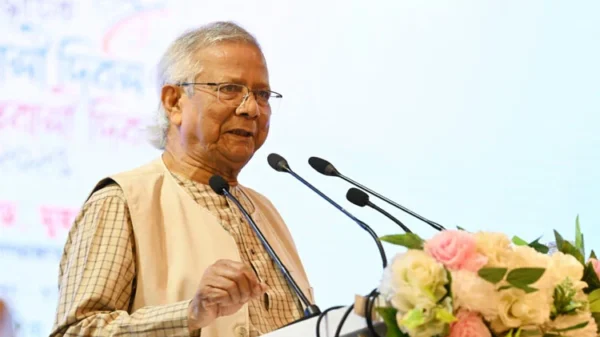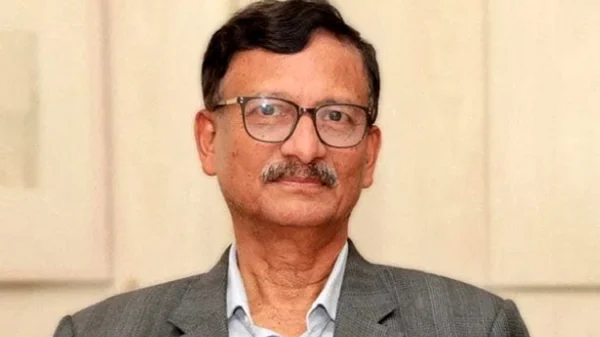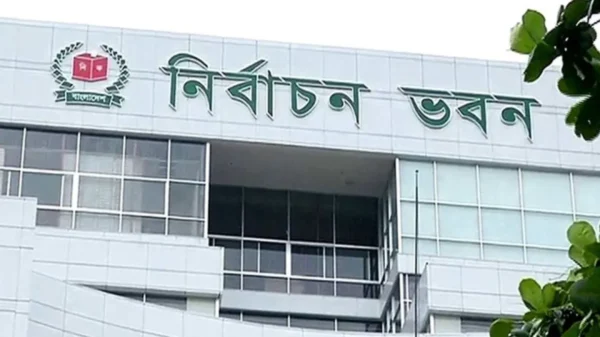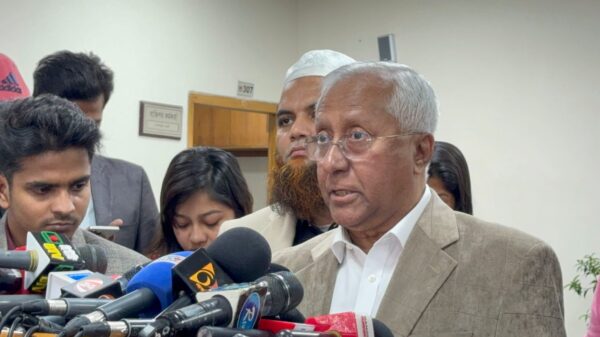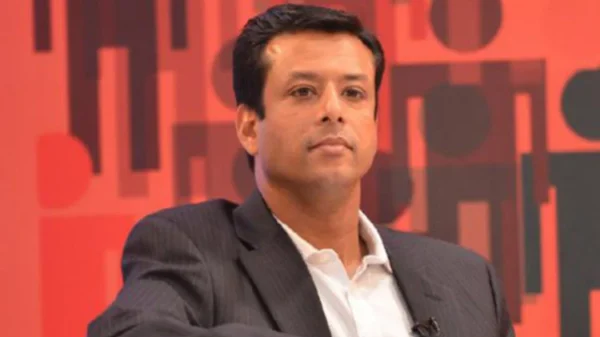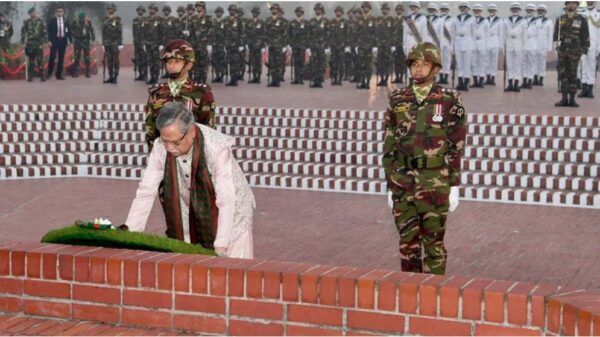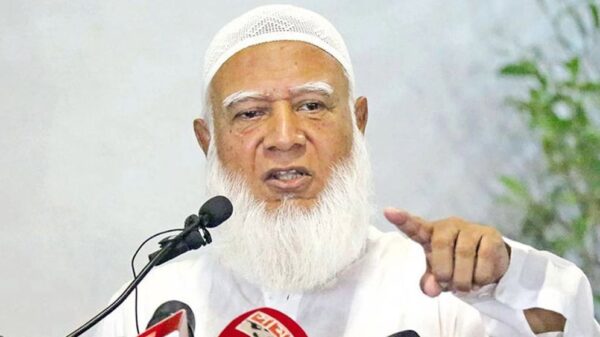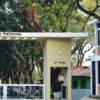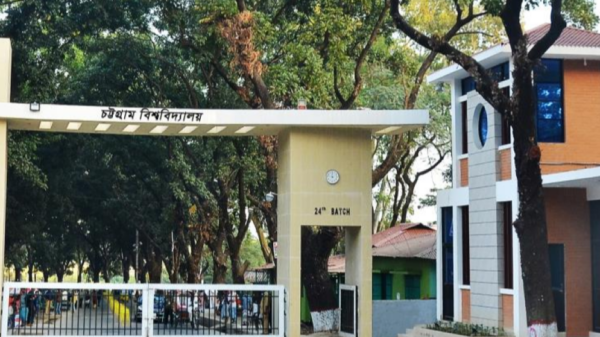A Correspondent:
Cox’s Bazar: Urging the international community to take stronger action to ensure justice, repatriation, and stability for the forcibly displaced Myanmar nationals, Chief Adviser Professor Muhammad Yunus yesterday placed a seven-point proposal to resolve the inhuman Rohingya crisis.
“It is not only the responsibility of Bangladesh, but also of the international community to share the bur-den of the Rohingya crisis, to reflect on the possible solutions, and play an active role in implementing those,” he said.
The chief adviser said this while addressing the ongoing three-day international conference titled “Stake-holders’ Dialogue: Takeaways to the High-Level Conference on Rohingya Situation”.
The conference aims to engage global stakeholders to find solutions to the prolonged Rohingya crisis.
Prof Yunus yesterday also formally inaugurated the main session of the ‘Stakeholders’ Dialogue’.
Explaining the proposals, the chief adviser said at first, umbilical relationship of Rohingyas with their homeland cannot be severed.
So, their rights to return to their homeland has to be secured, he said, adding, “Therefore, we urge all parties and partners to work hard for charting a practical roadmap for their speedy, safe, dignified, vol-untary and sustainable return to their homes in Rakhine as soon as possible. We must not be held hostage to mere rhetoric. The time for action is now”.
In the second point, the chief adviser said undiminished contribution of donors and humanitarian part-ners is essential to ensure continuity of life saving programmes.
“We make an appeal to the international donors to enhance their commitments in order to fill out the fund gaps in the Joint Response Plan for 2025-26. At the same time, we urge upon the stakeholders to undertake consolidated efforts for adequate and sustainable funding for future as well,” he added.
Prof Yunus said thirdly, all acts of violence against the Rohingya must cease immediately.
“We urge upon the Myanmar authorities as well as the Arakan Army to ensure safety, security and live-lihood of the Rohingyas. They should make sure that no more Rohingyas enter into Bangladesh,” he said.
“At the same time, they must allow internally displaced persons from camps in central and Northern Rakhine to return to their homes inside Myanmar as soon as possible,” he continued.
In the fourth point, the head of the interim government said a platform for consultation or dialogue is exigent for commencing communication, reducing tension and ending conflict among the ethnic com-munities inside Myanmar.
Professor Yunus, in his fifth point, said role of the international community, in particular ASEAN and countries in the neighbourhood is indispensable to create conducive environment in Rakhine.
“We support all international efforts to this end including ASEAN 5-Point Consensus. We urge upon the international community to be more active in advancing peace, security and stability in Rakhine and in the neighborhood,” he added.
He said: “We need to address and combat transboundary organized crimes including human and drug trafficking, smuggling of small arms and criminal activities that impact peace, security and stability”.
In the sixth point, Prof Yunus urged regional and international stakeholders to continue to stand reso-lutely against the heinous crime of ethnic cleansing.
“Towards that, we urge upon all to calibrate their relationship with Myanmar and the Arakan Army and all parties to the conflict in order to promote an early resolution of this protracted crisis,” he said.
The chief adviser also called upon the international community to add dynamism to the ongoing interna-tional accountability processes at International Court of Justice, International Criminal Court and else-where.
“We urge upon them to implement the provisional measures decided by the ICJ, ensure justice and ac-countability and put an end to the genocide and crimes against humanity. It is timely to reflect on realiz-ing relevant aspects of restorative justice,” he said.
Noting that in a spate of only few weeks, in August 2017, around 8 lakh Rohingyas crossed into Bangla-desh to save their lives, Prof Yunus said, “Unfortunately, the barbaric attack and persecution still per-sists. Hence, we see fresh arrivals at our doorsteps every day”.
“On the eighth Rohingya Genocide Remembrance Day, with a heavy heart, I draw your attention to the forced displacement of Rohingyas and their exodus to Bangladesh from Myanmar . . . . It will be a his-toric blunder if we wait for seeing the very last Rohingya leaving Rakhine. We cannot let it happen,” he added.
Referring to United Nations (UN) Secretary-General Antonio Guterres’ visit to Cox’s Bazar during the Ramadan in March this year, the chief adviser said Guterres himself had fasting for the whole day and had Iftar with nearly 100,000 to 150,000 Rohingyas around him.
“(At that time) we clearly heard Rohingyas’ keen desire to return home as soon as possible,” he added.
Pointing out the three-point proposition he made during the last year’s United Nations General Assembly to address the Rohingya crisis, Prof Yunus said, “In recognition of my call, the high-level conference was envisaged for this year’s General Assembly.”
“I hope that this dialogue here in Cox’s Bazar will contribute substantively to the conference in New York in shaping the roadmap for an expedited and permanent solution of the Rohingya crisis,” he ob-served.
Noting that Bangladesh opened its border to the Rohingya in a humanitarian gesture to save their lives despite resource and capacity constraint, the chief adviser said, “Currently Bangladesh hosts 1.3 million forcibly displaced Rohingyas from Myanmar that makes Cox’s Bazar the largest refugee camp in the world”.
In addition, around 32,000 new babies are born each year in these camps, he said, adding, on the contra-ry, only less than 5 lakh of them (Rohingyas) are living in Myanmar, which manifests that due to con-tinued persecution, Rohingyas continue to leave Myanmar.
He said during last eight years, people of Bangladesh, in particular the host community here in Cox’s Bazar, has been making tremendous sacrifices.
Seeking global support to resolve the crisis, he also said, “We don’t foresee any scope whatsoever for further mobilization of resources from our domestic resources, given our own challenges. Rohingya is-sue and its sustainable resolution must be kept alive on the global agenda as they need our support until they return home”, the CA said.
Diplomats, international experts, Rohingya community representatives, global organizations and academ-ics from both home and abroad and representatives from BNP, Jamaat-e-Islami and National Citizen Party (NCP) attended the event.



